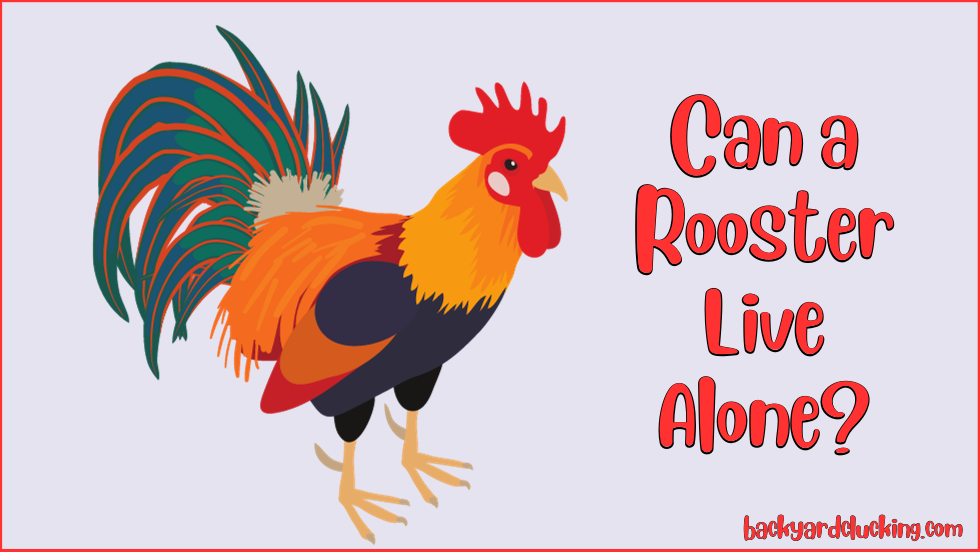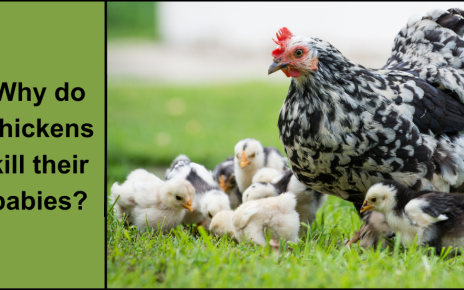If you’ve ever spent time around chickens, you know the sound of a rooster crowing in the morning. But did you know these feathered friends don’t live well alone? Roosters have evolved over centuries to become devoted flock guardians and enjoy being part of a group.
Unless necessary, they should never be raised apart from other birds. Read on to discover what happens when a rooster is kept without companionship or why separation from their family may not be in their best interests.
Can Roosters Live Alone?
Roosters are fascinating birds that are often found living in flocks on farms or homesteads. However, some people may find themselves wondering whether roosters can live alone. While it’s true that roosters are social creatures and thrive in the company of other chickens, they can certainly live alone under the right circumstances.
For example, if a rooster is kept in a spacious outdoor enclosure with plenty of room to roam, plenty of food and water, and other sources of enrichment, they can live happy and healthy lives by themselves. Ultimately, the key to a rooster’s well-being is ensuring they have access to everything they need to stay healthy and happy, whether living alone or with other chickens.
As an animal behaviorist, I can provide an in-depth explanation of the living conditions of roosters to answer the question, “Can a rooster live alone?” It’s essential to consider factors such as their natural habitat, social behavior, instincts, potential risks associated with isolation, and any unique influences that could affect a rooster’s well-being.
Fundamental Behavior of Rooster
Let’s understand the detailed behavior of a rooster that justifies why they need the company of others.
Natural Habitat and Social Behavior
Roosters are social animals that typically live in groups called flocks. In their natural habitat, they function within a social hierarchy known as the pecking order, where each bird has its own rank. Roosters establish dominance through various displays and behaviors, such as crowing, strutting, and occasional fights.
Instincts
Roosters are known for their protective instincts, especially regarding their hens. They can be quite assertive and territorial, which sometimes causes challenges when multiple roosters are housed in one area. When kept alone, a rooster’s protective instincts may manifest in increased vigilance and heightened stress levels.
Risks of Keeping a Rooster Alone
While roosters can survive and live alone, doing so could cause potential risks to their well-being. Isolation from companionship can lead to boredom, stress, or even depression in some cases. Additionally, being alone means they cannot express their natural behaviors, such as competition and flock protection, which may result in frustration and potentially aggressive behavior.
Factors to Consider
Several factors could impact a rooster’s ability to thrive in isolation, including:
- Age: Younger roosters might have more difficulty adapting to solitude than older, more established birds.
- Breed: Some breeds may be more prone to stress in isolation than others; research the specific breed before deciding on a single housing.
- Environment: Ensuring a comfortable and enriching environment is crucial in maintaining the well-being of a rooster living alone.
Practical Suggestions
For those who own or plan to own roosters, here are some recommendations to ensure your birds live a happy and healthy life when in isolation:
- Provide ample space: Roosters need enough room to move freely, including roost and dust bathing areas.
- Offer mental stimulation: Toys, perches, and various substrates can help keep your rooster entertained and mentally engaged.
- Maintain a healthy diet: Ensuring a proper and well-balanced diet will contribute to your rooster’s overall health and happiness.
- Consider companionship: Although keeping roosters together can lead to territorial issues, pairing your rooster with a few hens provides some social interaction.
- Monitor behavior: Monitor your rooster’s behavior and overall health. Consult a veterinarian or animal behaviorist if you notice signs of stress or unusual behavior.
Conclusion
In conclusion, while a rooster can live alone, providing a supportive environment that meets their physical and emotional needs is essential. Proper care, including mental stimulation and ample space, can help ensure your rooster lives a healthy and content life in isolation.


